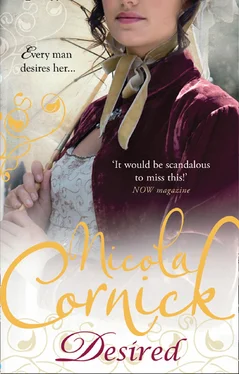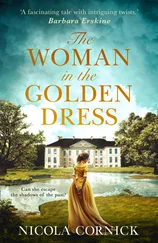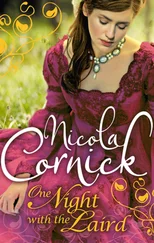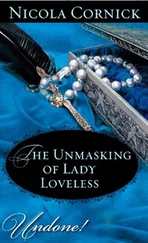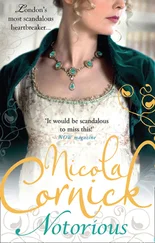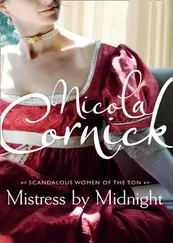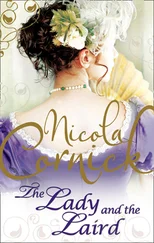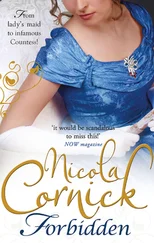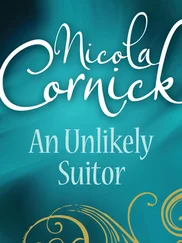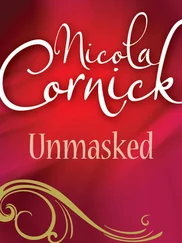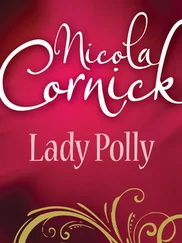Owen had not expressed his doubts about Lady Darent and her role as Jupiter when he had met Lord Sidmouth that morning to discuss the events of the political meeting and riot. He was not sure what had held him silent; lack of evidence perhaps, the fact that he still only half believed it himself, or even a powerful feeling of protectiveness that made him want to defend Teresa Darent rather than condemn her. This last was as inexplicable as it was disturbing. He had no sympathy with the radical cause and he thought Jupiter no more than a dangerous criminal intent on destroying law and order. Yet still he had kept silent; something had held him back.
He was not the only man investigating the Jupiter Club, however. Sidmouth had plenty of men at his disposal—infiltrators, informers and spies as well as his formal investigators. Owen knew it could be only a matter of time before Jupiter was unmasked and the club destroyed. Tess would guess that too. So here she was, seeking protection.
“Most men would see marriage to me as a prize in itself and not ask for more.” Tess’s answer to his question was full of disdain. Her chin had come up. Owen repressed a smile. Ten generations of Fenner family pride was in those words. She made him feel as though he had committed a faux pas in even questioning her. Perhaps her previous three husbands had snapped her up before she had finished making the offer. Owen had heard that she had proposed to each and every one of them, that approaching her chosen prey was Tess Darent’s style, whether she had selected a man to be her husband or her lover. She did not wait to be asked. She was the one who did the hunting.
That was the gossip. The truth, Owen thought, was probably a deal more complicated. He was already coming to the conclusion that Teresa Darent was in almost all particulars the opposite of how she appeared.
At the moment, for example, he could tell that she was ill at ease. He sensed the nervousness that beat inside her, a fear that she was making strenuous efforts to hide behind a flawless facade. She had chosen to stand a good distance away from him, by the long windows that looked out across the terrace to the neat garden with its clipped box hedges and yew. The autumn day had taken a long time to brighten that morning and now the grey light was behind Tess, concealing as much as it revealed. Owen could not see her expression at all. She stood straight and still, like a pale flame in a dress of yellow silk that made her the only bright thing in a dull room. The gown should have clashed with the russet of her hair, so cunningly arranged beneath the matching bonnet, and yet it did not. Instead it was a breathtaking contrast, framing her face like a halo of fire. Each item of clothing she had chosen had been for obvious effect, and it worked. Owen knew nothing about fashion and cared less. He had an innate taste and wore his clothes with the sort of careless elegance that his valet deplored. Tess Darent, he thought, deployed her wardrobe like a weapon. She knew the value of appearance and the way it could give you protection as well as confidence.
He walked towards her very slowly, very purposefully, his footsteps ringing on the bare wooden boards of the library floor. There were no deep rugs or carpets here to soften the austerity of the room. Rothbury House had been woefully neglected under his cousin Peregrine, who had been widowed for years and had seldom been in England. All the Rothbury estates were in disrepair and would take thousands to renovate. Marriage to an heiress was an obvious solution, as his aunt Martindale had pointed out. If he wed and produced an heir, she had said, she would settle the Rothbury debts and pay for the estates to be restored.
Lady Martindale would not approve of Tess Darent as a bride. The idea of marrying a woman who would incur his great-aunt’s deepest disapproval pleased Owen, a small act of rebellion when he was hamstrung by so much of his new inheritance. It was not a good reason for marriage. He knew it. Yet it appealed to him.
He stopped when he was no more than a couple of feet away from Tess. Her violet-blue eyes met his very directly. There was now no nervousness in them. Owen wondered if he had imagined the tension he thought he had sensed in her. But no. He felt it again, and saw the way in which she stepped back, almost imperceptibly, to put more distance between them. She was withdrawing from him. Evidently she was not comfortable with physical proximity. Which was very odd indeed if the rumours about her were true.
“I doubt most men would see marriage to you as a prize if they are not permitted to sleep with you,” Owen said drily. “Forgive my plain speaking,” he added, seeing the flash of anger in her eyes. “I always find it best to be quite frank in discussions of an intimate nature.”
“I have never thought of marriage as an intimate matter,” Tess snapped. The pink colour had come into her face now. “I fear you have a sadly colonial view of the institution, Lord Rothbury. Marriage in the ton is for profit alone. You profit from my beauty and connections and I gain the protection of your name.”
“Forgive me again,” Owen said, “but is that an equal bargain?”
“No,” Tess said, “the bargain favours you by far. I would be the one compromising by marrying a mere viscount.”
“One does not need to possess a thoroughbred horse to admire its beauty,” Owen said.
Tess raised a haughty brow. “I beg your pardon? Is one of us an animal in your analogy?”
“And as for connections in the ton,” Owen continued, “I do not value them.”
“That is short-sighted of you,” Tess said. “So short-sighted I doubt you have the vision to appreciate your thoroughbred.”
Owen smiled. Oh, he appreciated her. She was beautiful enough to turn any man’s head. And at the very least, he thought, if he married her he would never be bored. Conversation with Tess Darent had the astringency of a dose of salts. Though no doubt she would say that a fashionable husband and wife spoke to one another as little as possible and preferably only via the servants.
“And your reputation?” he said. “Many men might balk at taking a wife with the sort of reputation for sin one would normally hope for in a mistress.”
Once again he had been brutally frank and he awaited her response with interest. Her defences were so perfectly in place, however, that he could discern not one flicker of emotion in her: no shock, no anger, nothing. She looked him over with that detached blue gaze he was starting to know.
“You,” she said, after a moment, “have a reputation as a pirate and a mercenary soldier. Most women would prefer such a man as a lover rather than a husband.”
Touché .
Owen inclined his head. “I was not a pirate, though I suppose you could say I was a mercenary soldier,” he admitted.
“Whereas I have never been a whore,” Tess said. The coolness of her response made him smile. She certainly had nerve. “And were we to wed,” she continued, “I would behave with the utmost propriety. I am marrying to try to rescue my reputation, so there would be no point in my sinking it further.”
“I feel I must point out,” Owen said, “that I found you climbing out of a brothel window last night.”
Her pansy eyes lit with mockery. “We were not betrothed last night, Lord Rothbury.”
He had to give her credit. She played the coolest hand of anyone he knew. Which was perfectly in keeping with a woman who might lead a secret life as a radical sympathiser, who carried a pistol in her reticule and who might well have been in Mrs. Tong’s brothel for purposes other than a night of debauchery.
He was intrigued. Owen admitted it to himself. He had a low threshold of boredom, the product of a lifetime of constantly moving onward and seeking new challenges. He had gone to sea when he was in his teens and had spent his life exploring, fighting and carving out a future. He liked unpredictability and risk. It was what made him feel alive.
Читать дальше
